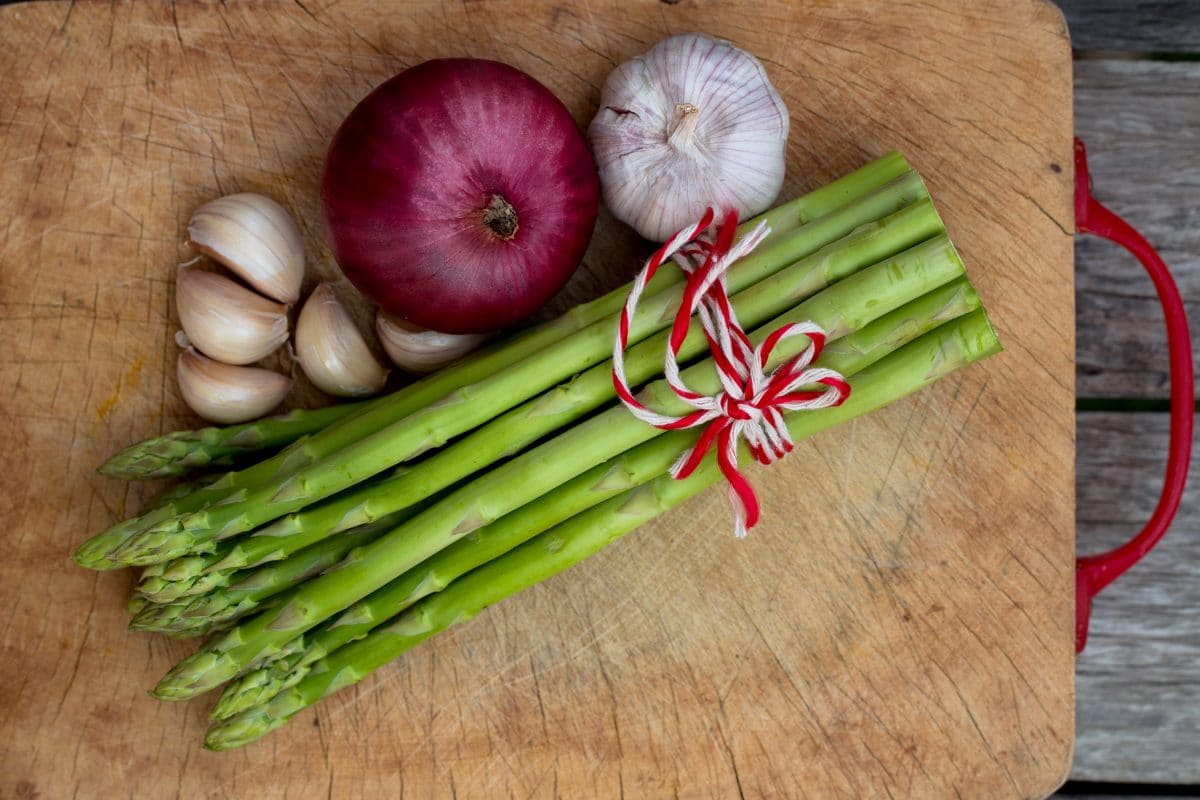Fructans – are you intolerant to them?
- Dietary Advice (non Low FODMAP)
- Low FODMAP diet
You may have heard of restricting fructans before, but what are they, and where do you find them?
This post will explain what fructans are, how we digest them, why some people are sensitive to them and what you can do about it!

What are fructans?
Fructans are a type of FODMAP. They fall under the oligosaccharides group (the O in ‘FODMAP’).
They are made from chains of fructose, with a glucose molecule at the end. These chains can vary in length in different foods.
How are fructans digested?
Fructans are poorly broken down in the small bowel. Studies suggest that the general population can digest only 5-15% of fructans. This is due to a lack of enzymes to break them down into individual fructose and glucose molecules (1).
As fructans are not digested well, they pass through to the large intestine, where they are fermented by our natural gut bacteria (2)
What is fructan intolerance?
It has been estimated that 24% of people with IBS are sensitive or intolerant to fructans (3).
When fructans arrive at the large bowel, bacteria begin to ferment them. This fermentation process creates gasses as byproducts (2).
This extra gas can be difficult to tolerate for people with IBS, causing gastrointestinal symptoms such as bloating, flatulence and nausea. It can also draw more water into the large intestine, causing diarrhoea.
Is gluten a fructan?
No – gluten is not a fructan.
Gluten often gets a bad reputation for causing nasty gut symptoms, and many people avoid it for this reason.
Many foods high in gluten are also high in fructans, such as bread and cereals. A 2018 study showed that fructan-contain muesli bars caused worse symptoms in people with IBS than gluten-containing bars (4).
Another study from 2021 showed that FODMAP consumption caused worse gut symptoms in participants with IBS. However, there was no difference in symptoms for the group eating gluten (5).
This means that fructan-containing foods are likely to be more responsible for your gut symptoms than gluten for people with IBS.
What foods are high in fructans?
The table below shows examples of foods that are high in fructans (3, 6, 7):
| Fruit | Vegetables | Grains, pulse, nuts | Added ingredients |
| Grapefruit | Garlic | Bread | FOS |
| Ripe bananas | Onion | Cereals | Inulin |
| Dates | Artichokes | Cashew nuts | |
| Prunes | Brussel sprouts | Pistachio nuts | |
| Leek | Beans and pulses | ||
| Asparagus |
Do vegetables have fructans?
As highlighted above, some vegetables do contain fructans. So if you are following the low FODMAP diet, it is essential to know which vegetables to avoid in the exclusion phase, so you don’t cut things out unnecessarily.
As it is crucial not to over-restrict vegetables when on the low FODMAP diet, we have written a blog post on low FODMAP vegetables.
How do you know if you have fructan intolerance?
There are no standardised tests to know if you have fructan intolerance. If you have IBS, the way to test for this is through trialling the low FODMAP diet. The reintroduction phase is where you will identify how much you can tolerate.
If you are going to trial the low FODMAP diet, we recommend doing so with the help of a specialist dietitian.
Summary
Fructans are a type of FODMAP. They can therefore be responsible for gut symptoms in IBS. Many foods contain fructans, so it is important to know which foods contain them.
If you think you are sensitive to them, the way to try this is through a trial of the low FODMAP diet with careful reintroduction. Your dietitian can advise you on the best way to achieve this.
Written by Annabelle Green, Student Dietitian and reviewed by Beth Willson BSc Hons RD, Specialist Surgical Dietitian